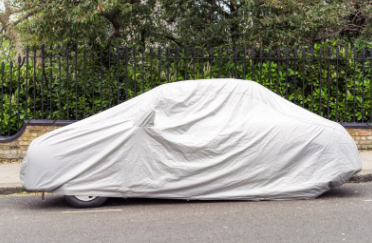How Long Can a Car Sit Without Being Driven?

While road trips are great, many people leave their cars behind when traveling by other means. But what happens when we leave our vehicles unused for an extended period?
While the answer depends on several factors, Christian Brothers Automotive is here to dive into the details, explain the negative effects of not starting your car often, and how to ensure you're returning to a reliable vehicle after some time away.
How Long Can a Car Sit Unused?
The short answer is that it's recommended to drive your car at least once every two weeks. This allows the battery to recharge and fluids to circulate, preventing specific mechanical issues from arising. Any longer can have negative effects on your car!
The Impact of Not Driving Your Car Regularly
If you're planning on leaving your car unused for an extended period, it's important to understand the potential effects like:
- Battery Issues: Your battery charges as you drive, and if your car is sitting idle for too long, it can drain entirely due to most modern vehicles having electrical draws even when off. This can lead to a dead battery and the need for a jump start or replacement.
- Tire Damage: Tires that sit for a long time can lose air pressure and develop flat spots from holding the car's weight in one place. This can lead to uneven wear and even blowouts when you finally get back on the road.
- Pest Infestation: Small animals like mice or squirrels might be tempted to live in your unused car, especially during cold weather. They can chew on wires and hoses, causing damage that can be expensive to fix.
- Fluid Degradation: Over time, various fluids in your car, like engine oil, coolant, and brake fluid, can degrade. This can lead to increased wear and tear in the engine, overheating, or reduced performance.
While some of these car issues will depend on where your car is stored, the climate, and other factors, there are ways to mitigate or even prevent damage from occurring.
6 Tips to Prepare Your Car You're Not Driving
If you can have a family member, friend, or neighbor drive your car at least once every two weeks while you're away, that's the best option. However, if that's not possible, here are some tips to prepare your car for an extended period:
Oil Change
An oil change is one of the most crucial steps before leaving your car unused for an extended period. Used oil can contain contaminants that may lead to corrosion within the engine. Fresh oil, on the other hand, ensures that engine components remain well-lubricated and protected while your vehicle sits idle.
Additionally, this is an excellent opportunity to catch up on any other maintenance or repairs your car might need. This safeguards against potential issues while you're away and provides peace of mind knowing your car is in its best possible shape for your return.
Check Pressure and Inflate Tires
To avoid flat spots and uneven wear, inflate your tires to the recommended pressure before leaving your car parked for an extended period. This information is on a sticker on the driver's side door jamb or in the owner's manual.
Use this guide to ensure you're checking your tire pressure correctly!
Fill the Gas Tank
A full tank of gas is more than just a convenience. By filling your gas tank, you reduce the amount of air that can enter and bring moisture along with it. Moisture buildup in the fuel system can lead to rust and corrosion, which may cause long-term damage to your engine and its components.
Using a fuel stabilizer is also highly recommended. These additives prevent gasoline from breaking down over time and forming deposits that clog fuel systems and dampen engine performance. It can keep your fuel fresh and engine protected – even if your car sits idle for months!
Park it In a Safe and Secure Location
Location, location, location! Be sure to park your car in a safe and secure location, such as a garage or covered parking lot. This protects it from harsh weather conditions like extreme heat, cold, or precipitation.
If you don't have access to a garage or covered parking, consider investing in an outdoor car cover to protect your vehicle from the elements. Ensure the cover is properly tied down so it doesn't fly away in strong winds!
Disconnect the Battery
Disconnect your battery while you're away to prevent it from draining completely. This will also help avoid potential electrical issues that can arise if your car's electrical system has faulty components. You can also invest in a battery tender or trickle charger to keep your battery charged while away.
Check out this guide to learn how long a car can sit before the battery dies and other ways to prevent it.
Call Your Car Insurance
Depending on your state's rules and insurer's policies, you may be able to reduce or pause your car insurance coverage while it's sitting unused. This can save you money on premiums while still having some level of protection for your vehicle.
It's essential to speak with your insurance provider beforehand to understand any potential changes in coverage or fees that may result from temporarily reducing your coverage.
Need Help Prepping or Maintaining Your Car?
If you're unsure how long your car can sit, it's better to be safe than sorry! At Christian Brothers Automotive, we offer various services to help keep your vehicle in top condition. From routine maintenance to properly prep your car for storage or professional repairs that may be needed upon your return, our auto experts have got you covered.
Don't let an extended trip or period of non-use lead to unexpected car troubles. Find your nearest Christian Brothers Automotive location and schedule an appointment today!


[1].jpg)
[2].jpg)
sunwash-tech-with-customer.png)
